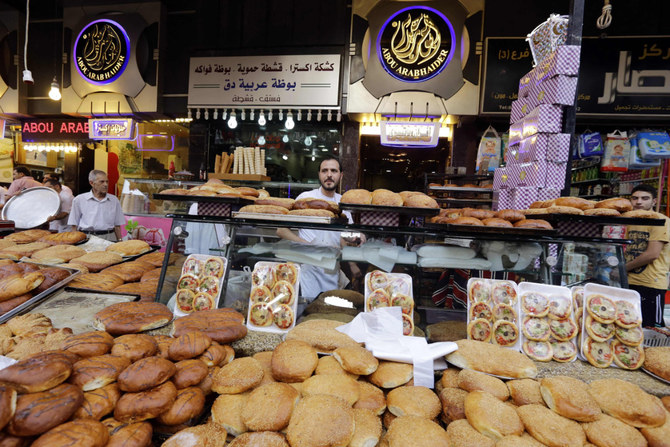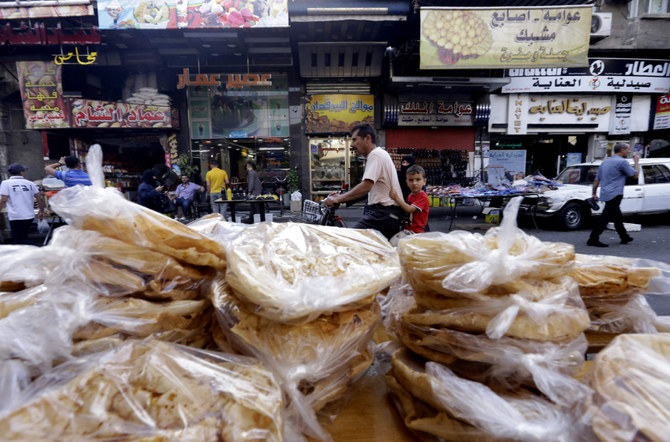JEDDAH: The price of bread in Syria doubled on Sunday and the cost of diesel fuel nearly tripled as the Assad regime confronted a cash crisis caused by 10 years of civil war and Western sanctions.
Damascus has repeatedly raised fuel prices in recent years to tackle the financial crunch, and the latest increases follow a 25 percent rise in the price of gasoline last week.
To soften the blow, President Bashar Assad issued a decree increasing public sector salaries by 50 percent and setting the minimum wage at 71,515 Syrian pounds per month ($28 at the official rate), up from 47,000 pounds ($18).
He also raised public sector and military pensions by 40 percent.
It was not clear where the funds would come from. An economist in Damascus said that the government would continue to raise prices as the crisis deepens.
“As long as there is no money entering the treasury, the price increases will continue,” he said.
FASTFACT
Bashar Assad’s regime has repeatedly raised fuel prices in recent years to tackle the financial crunch, and the latest increases follow a 25% rise in the price of gasoline last week.
Syrians will now pay 500 pounds for one liter of diesel fuel, up from the 180 pounds users in most sectors were paying previously.
Mustafa Haswiya, of the state-run Syrian Company for the Storage and Distribution of Petroleum Products, said 80 percent of Syria’s hydrocarbon needs were purchased from abroad using foreign currency.
“It was necessary to raise prices in order to reduce the import bill,” he said.
The price of subsidised bread doubled to 200 Syrian pounds. The state-run Syrian Foundation for Bakeries said the rising price of diesel fuel had contributed to the increase.
“This was all expected and now we fear further increases in the price of ... food and medicine,” said Damascus resident Wael Hammoud, 41.
The pro-regime Al-Watan daily on Sunday said the diesel fuel hike would lead to “an increase in the cost of transport within and across provinces” by more than 26 percent.
Production costs would also increase in the agriculture and industrial sectors, it said, and the cost of heating homes would rise by 178 percent.
The Syrian economy has been hard hit by a decade of war, Western sanctions, widespread corruption and most recently a severe economic and financial crisis in neighboring Lebanon. The last salary increase was announced in November 2019.
The US dollar is trading at about 3,200 pounds on the black market while the official rate is 2,500 pounds.
Nearly 80 percent of Syrians live in poverty, and 60 percent are food insecure — the worst food security situation ever seen in Syria, according to the United Nations.
(With AP)




























